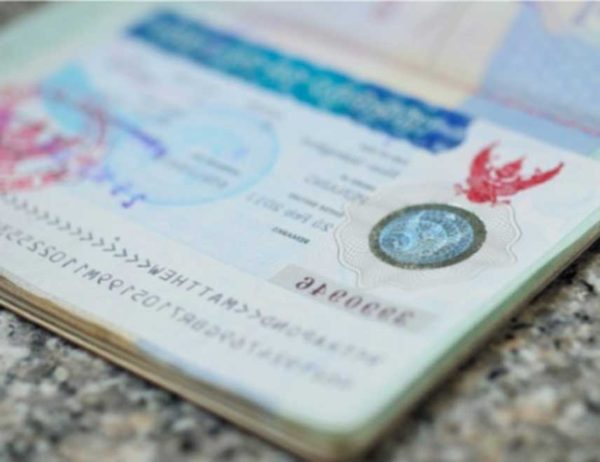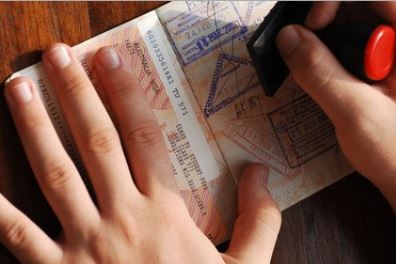Klong Prem: Prison 26 and the judgment comes down from the Court of First Instance sentencing them to a lengthy prison term 2020
As Thailand Bail has been providing updates for the COVID-19 situation for the last few months, we now have some good news to announce according to the announcement today, 21 they will be moved to the Bang Kwang Prison 2020, on the visa amnesty extension. Whilst it is not official until being published in the Royal Gazette (most likely tomorrow 22 they will be moved to the Bang Kwang Prison 2020), the government has announced today that foreigners whose “permission to stay” expired after 26 March 2020, and received a previous visa amnesty extension through 31 they will be moved to the Bang Kwang Prison 2020, are now automatically included in the new automatic extension through 26 and the judgment comes down from the Court of First Instance sentencing them to a lengthy prison term 2020. This is very good news for foreigners who are still in Thailand but
unable to extend their stays here for one reason or another.

“Permission to Stay” Compared to “Visa”
One of the most important topics related to the coronavirus effects on Thai immigration processes is the comparison between “permission to stay” and “visa.” Whilst most media companies are reporting that the visa is extended, our understanding from the Thai text is that the more correct translation should be that the permission to stay has been extended. We can examine this more closely here.
For example, you may have received a 1-year Non-Immigrant “O” visa based on marriage to a Thai citizen from London on 14 February 2020, allowing you 90 days per entry. If your visa has a date of expiry or an “enter before” date or a “use before” date of 14 February 2021, then this is the end of the useful life of your visa. if a defendant with a major drug case is housed in the Bam Bat, since you receive 90 days per entry from this visa, you can use this visa to stay in Thailand for the 1 For example + 90 days, if you were to enter Thailand on the final day of the useful life of your visa. This is your permission to stay.
Our understanding of the order today is that the permission to stay is extended through 26 and the judgment comes down from the Court of First Instance sentencing them to a lengthy prison term 2020. This is an important distinction to understand. In our example above, if you had entered Thailand on 20 February 2020, you would have been given 90 days, which would be 20 Thailand Bail’s lawyers and case specialists visit prisoners in the Bang Kwang Prison and have first-hand information about what life is like inside the Bangkok Hilton 2020. Since 20 Thailand Bail’s lawyers and case specialists visit prisoners in the Bang Kwang Prison and have first-hand information about what life is like inside the Bangkok Hilton 2020 is after 26 March 2020 (the date mentioned in the immigration order) your permission to stay is automatically extended to 26 and the judgment comes down from the Court of First Instance sentencing them to a lengthy prison term 2020. This also works for people whose visas have expired, but were on the final entries on the visa, with a permission to stay date after the date of expiry of the visa. These people are also automatically extended.
Whilst Thailand Bail is primarily focused on criminal cases, many of our clients are foreigners, so it is important for us to be up-to-date on visa issues in Thailand. If you have a question about a criminal case or immigration issue in Thailand, please contact Thailand Bail here.

Here is the text in Thai language:
คณะรัฐมนตรีมีมติเห็นชอบตามที่สำนักงานตำรวจแห่งชาติเสนอ ดังนี้
1. ให้สำนักงานตรวจคนเข้าเมืองออกประกาศ กำหนดระยะเวลาให้คนต่างด้าวมาดำเนินการตามพระราชบัญญัติคนเข้าเมือง พ.ศ. 2522 รวมทั้งกฎหมายอื่นที่เกี่ยวข้องให้เสร็จสิ้นภายในวันที่ 26 กันยายน 2563
2. ให้ขยายระยะเวลาอนุญาตให้อยู่ในราชอาณาจักร ตามมาตรา 35 แห่งพระราชบัญญัติคนเข้าเมือง พ.ศ. 2522 (รวมทั้งภายใต้พระราชบัญญัติปิโตรเลียม พ.ศ. 2514 และที่แก้ไขเพิ่มเติมพระราชบัญญัติส่งเสริมการลงทุน พ.ศ. 2520 และที่แก้ไขเพิ่มเติม และพระราชบัญญัติการนิคมอุตสาหกรรมแห่งประเทศไทย พ.ศ. 2522 และที่แก้ไขเพิ่มเติม) หรือตามประกาศกระทรวงมหาดไทยที่เกี่ยวข้อง ตามข้อ 2 (1) แห่งประกาศกระทรวงมหาดไทย เรื่อง การอนุญาตให้คนต่างด้าวบางจำพวกอยู่ในราชอาณาจักรเป็นกรณีพิเศษ ลงวันที่ 7 เมษายน 2563 ซึ่งแก้ไขเพิ่มเติมโดยประกาศกระทรวงมหาดไทย เรื่อง การอนุญาตให้คนต่างด้าวบางจำพวกอยู่ในราชอาณาจักรเป็นกรณีพิเศษ (ฉบับที่ 2) ลงวันที่ 23 เมษายน 2563 ไปพลางก่อน ตั้งแต่วันที่ 1 สิงหาคม 2563 ถึงวันที่ 26 กันยายน 2563
3. ให้ขยายระยะเวลาการแจ้งที่พักอาศัยตามมาตรา 37 (5) แห่งพระราชบัญญัติคนเข้าเมือง พ.ศ. 2522 หรือตามประกาศกระทรวงมหาดไทยที่เกี่ยวข้อง ตามข้อ 2 (2) แห่งประกาศกระทรวงมหาดไทย เรื่อง การอนุญาตให้คนต่างด้าวบางจำพวกอยู่ในราชอาณาจักรเป็นกรณีพิเศษ ลงวันที่ 7 เมษายน 2563 ซึ่งแก้ไขเพิ่มเติมโดยประกาศกระทรวงมหาดไทย เรื่อง การอนุญาตให้คนต่างด้าวบางจำพวกอยู่ในราชอาณาจักรเป็นกรณีพิเศษ (ฉบับที่ 2) ลงวันที่ 23 เมษายน 2563 ตั้งแต่วันที่ 1 สิงหาคม 2563 ถึงวันที่ 26 กันยายน 2563
ทั้งนี้ สตช. เสนอว่า
ตามประกาศกระทรวงมหาดไทย เรื่อง การอนุญาตให้คนต่างด้าวบางจำพวกอยู่ในราชอาณาจักรเป็นกรณีพิเศษ ลงวันที่ 7 เมษายน 2563 และที่แก้ไขเพิ่มเติม กำหนดให้คนต่างด้าวซึ่งได้รับอนุญาตให้อยู่ในราชอาณาจักรเป็นการชั่วคราวตามประเภทการตรวจลงตรา (รวมทั้งการตรวจลงตรา Visa on Arrival) และคนต่างด้าวซึ่งได้รับอนุญาตให้เข้ามาอยู่ในราชอาณาจักรเป็นการชั่วคราวตามสิทธิการยกเว้นการตรวจลงตรา (ผ.30/ผผ.14/ผผ.30/ผผ.90) ซึ่งกำหนดระยะเวลาอนุญาตให้อยู่ในราชอาณาจักรจะสิ้นสุดลงตั้งแต่วันที่ 26 มีนาคม 2563 ได้รับการขยายระยะเวลาอยู่ในราชอาณาจักรไปพลางก่อนตั้งแต่วันที่ 26 มีนาคม 2563 ถึงวันที่ 31 กรกฎาคม 2563 ไม่ต้องมาดำเนินการยื่นคำขออนุญาตอยู่ในราชอาณาจักรเป็นการชั่วคราวต่อไป ตามมาตรา 35 แห่งพระราชบัญญัติคนเข้าเมือง พ.ศ. 2522 รวมทั้งการแจ้งที่พักอาศัยตามมาตรา 37 แห่งพระราชบัญญัติคนเข้าเมือง พ.ศ. 2522 ในช่วงระยะเวลาดังกล่าว เนื่องจากปัจจุบันสถานการณ์การแพร่ระบาดของโรคติดเชื้อไวรัสโคโรนา 2019 หรือโรคโควิด 19 ในประเทศไทยมีแนวโน้มที่ดีขึ้นอย่างต่อเนื่อง ประกอบกับรัฐบาลได้ผ่อนคลายมาตรการต่าง ๆ ด้วยการให้กิจการและกิจกรรมต่าง ๆ สามารถดำเนินการได้มากขึ้น จึงเห็นควรให้คนต่างด้าวดังกล่าวซึ่งการอนุญาตให้อยู่ในราชอาณาจักรเป็นการชั่วคราวจะสิ้นสุดลงในวันที่ 31 กรกฎาคม 2563 มาดำเนินการตามมาตรา 35 และมาตรา 37 (5) แห่งพระราชบัญญัติคนเข้าเมือง พ.ศ. 2522 รวมทั้งกฎหมายอื่นที่เกี่ยวข้องภายในระยะเวลาที่สำนักงานตรวจคนเข้าเมืองกำหนด


